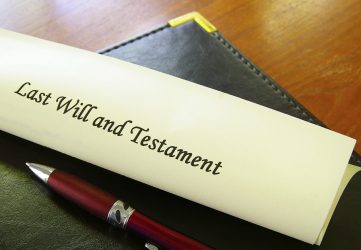By Kim Larsen of Larsenlaw Group posted on Monday, February 17, 2020.
People will often confuse having a document notarized and having a document commissioned. Understanding the difference between a notary public and a commissioner for oaths can be confusing. This misunderstanding can lead to spending money you do not have to, delays in completing documents, and the rejection of a document being submitted.
What is a Commissioner For Oaths?
The Commissioners for taking Affidavits Act in Ontario allows for people to be appointed to be a commissioner for oaths. A commissioner for oaths is able to take and receive affidavits, affirmations and declarations in and for Ontario. A stamp is used along with their signature but there isn’t a seal. These appointments expire and must be renewed.
There are also people who are commissioner for oaths who are so by virtue of their office or status. These people include:
- Judges
- Lawyers
- Students-at-law
- Political representatives
- Police officers
- Notary publics
What Is A Notary Public?
The Commissioners for taking Affidavits Act in Ontario allows for a Notary Public to:
1. administer oaths or take affidavits, affirmations or declarations and attest the oaths, affidavits, affirmations or declarations
2. certify and attest a true copy of a document, and
3. witness or certify and attest the execution of a document.
A notary has a stamp and a seal when they sign off on documents and are specifically allowed to be used in Ontario, within Canada and internationally.
What Is The Difference Between A Notary Public And A Commissioner for Oaths
The main difference between a notary public and a commissioner for oaths is where a document is to be used as well as what a person needs. For a simple taking of an oath, both a notary and commissioner are acceptable if for use and made in Ontario. Once outside the province, a notary is required. For example, the Ontario land titles office will not accept an affidavit of execution that is sworn in British Columbia if the document is commissioned. It will allow it if it is notarized.
Furthermore, another difference between a notary public and a commissioner for oaths is that only a notary can make a certified true copy of a document, attest an oath or certify the execution of a document.
Independent Legal Advice (ILA)
Notwithstanding the difference between a notary public and a commissioner for oaths, neither can give Independent Legal Advice (also known as ILA). Legal advice can only be given by a lawyer in Ontario. Personal Guarantees are also confused in that they require more than just signing off on a document. They require that the person acknowledging a personal guarantee understands the nature of the personal guarantee. Therefore it is very important to bring all documents related to the debt or potential debt being guaranteed to your appointment.
LarsenLaw can assist with your any of your needs. Call us today.







